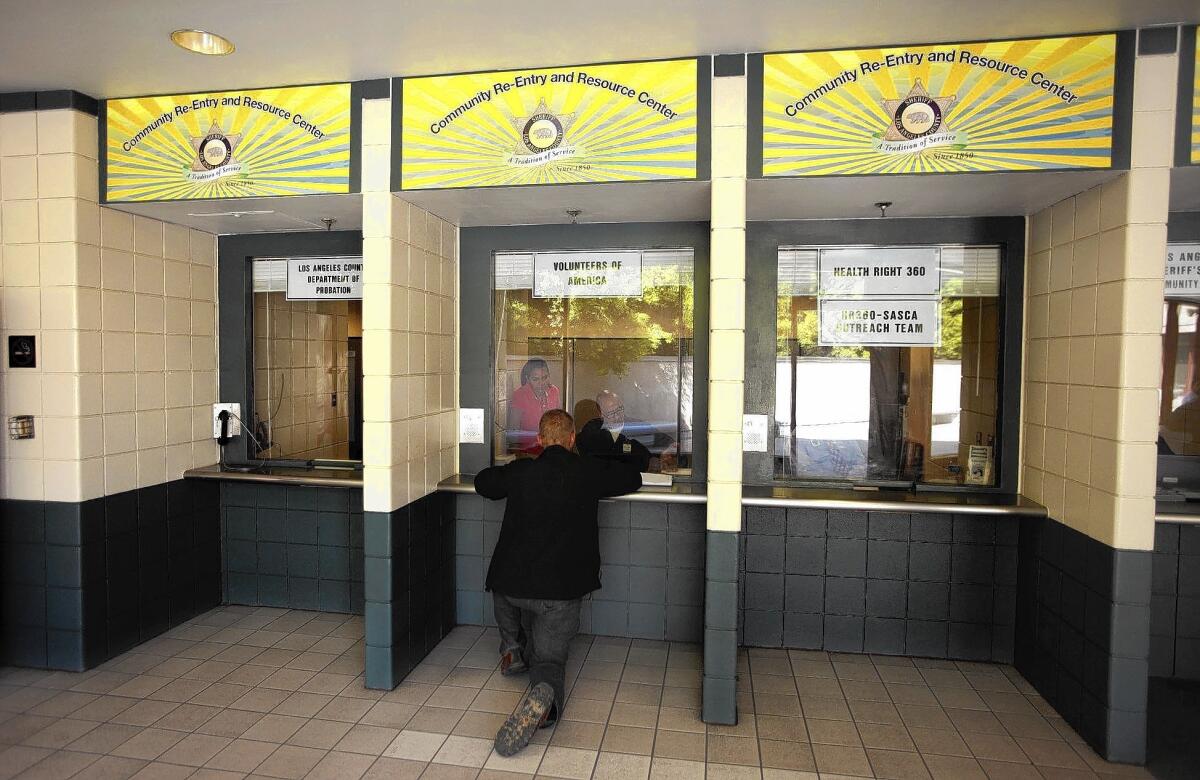California is releasing prison inmates in droves. It needs to do more to help them reenter society

- Share via
California pioneered the criminal justice reforms that have rolled back some of the excessive and counterproductive punishments responsible for packing jails and prisons across the county in the 1980s, 1990s and early 2000s. But it still lags in “reentry” programs, which assist inmates as they transition back to life outside a cell.
Nonprofit organizations help former prisoners find housing, medical and mental health care, and legal advice to clear their records of outstanding fines and fees that could be a barrier to employment. But the services, many of them excellent, are underfunded, poorly coordinated and without much state support or oversight. Although some counties, Los Angeles among them, do their best to coordinate reentry programs, more is needed.
Many other states have formal reentry programs that help former inmates and, at the same time, their communities. New Jersey, for example, has a Commission on Reentry Services that is tasked with identifying and removing obstacles to former prisoners’ successful return to society. Its purview includes housing, employment, education, mental health, substance abuse treatment and legal assistance. The commission’s ability to change the system directly is limited, but at least it can and does recommend changes in state law to ease reentry.
It’s time for California to develop its own reentry infrastructure, preferably with more direct power to make a difference.
Senate Bill 369 would get the ball rolling by creating a California Reentry Commission that would coordinate services from various state agencies, review the barriers faced by ex-inmates coming home, make recommendations to the Legislature and — importantly — provide grants to the reentry service providers that do much of their important work on shoestring budgets. A grant program could expand the best nonprofit agencies and help improve — or weed out — those that don’t get the job done.
This sort of infrastructure is overdue, considering the hundreds of inmates released in recent months to cut down on the spread of COVID-19. Had a reentry commission already been in place, it could have been working with the corrections department to ensure that any inmates released ahead of schedule for health and safety reasons had a safe place to go.
Even in more normal times, homebound ex-prisoners will pose fewer problems for themselves, their families and their neighbors if they have better assistance from the state.
The Legislature is shelving scores of proposals in order to focus on the extraordinary challenges of COVID-19. The reentry bill is one that deserves to move forward. It’s the right bill for a time of pandemic — and for the post-pandemic world that is eventually to come.
More to Read
A cure for the common opinion
Get thought-provoking perspectives with our weekly newsletter.
You may occasionally receive promotional content from the Los Angeles Times.









